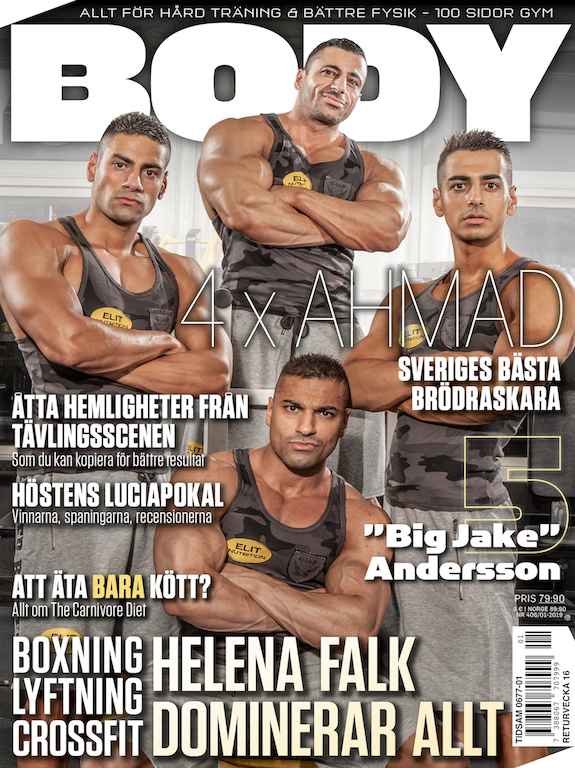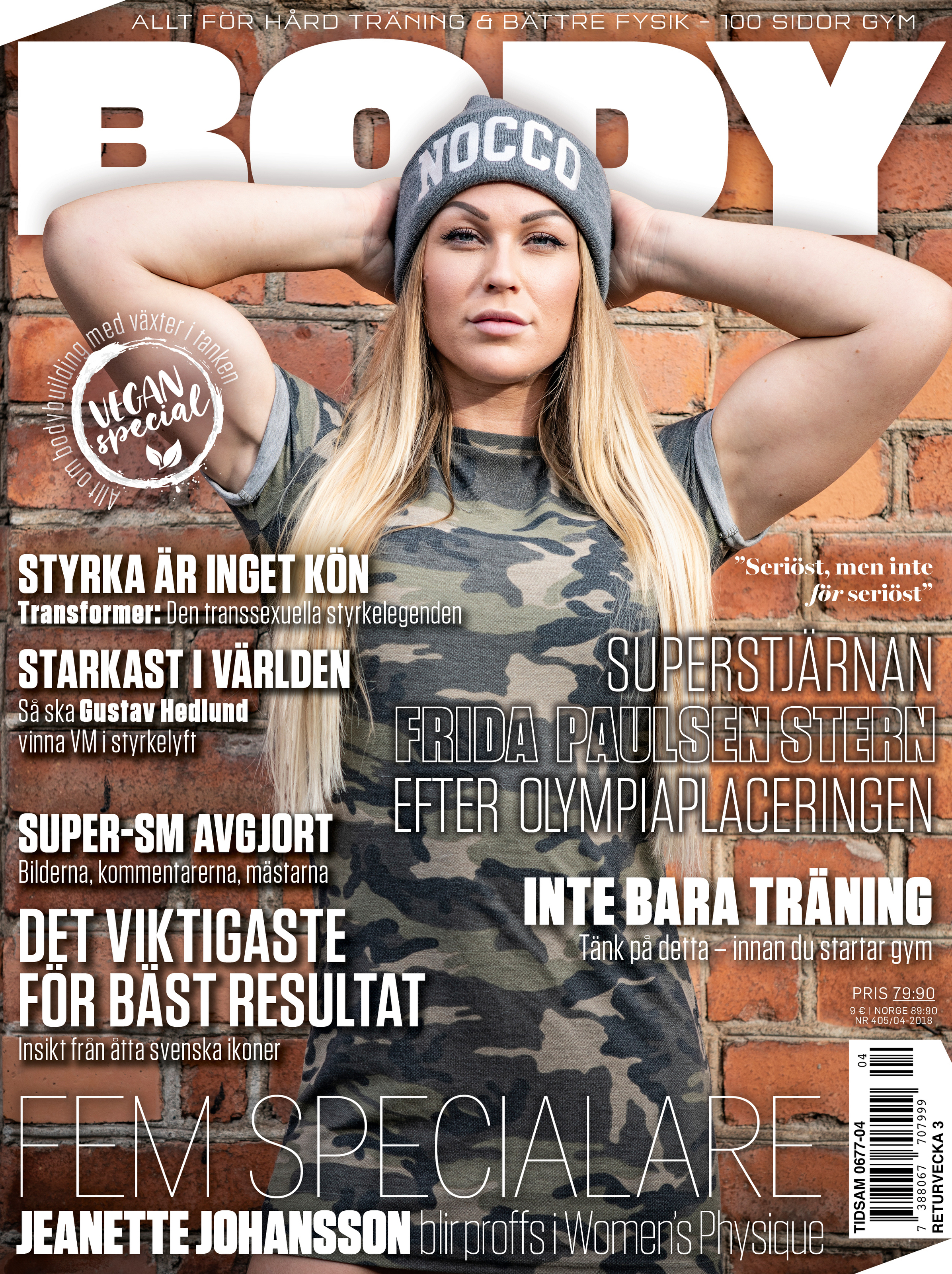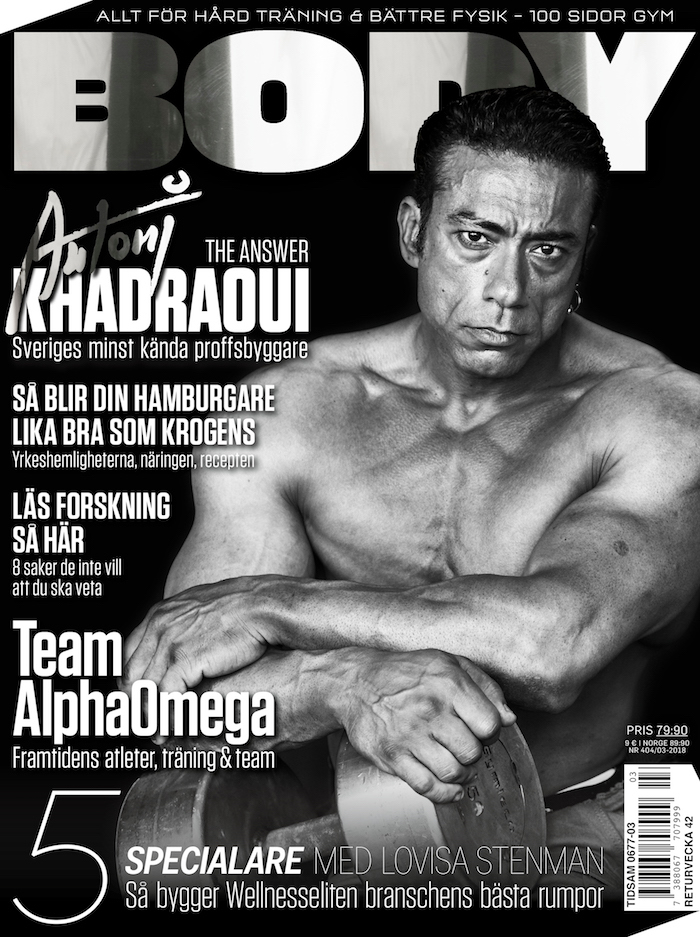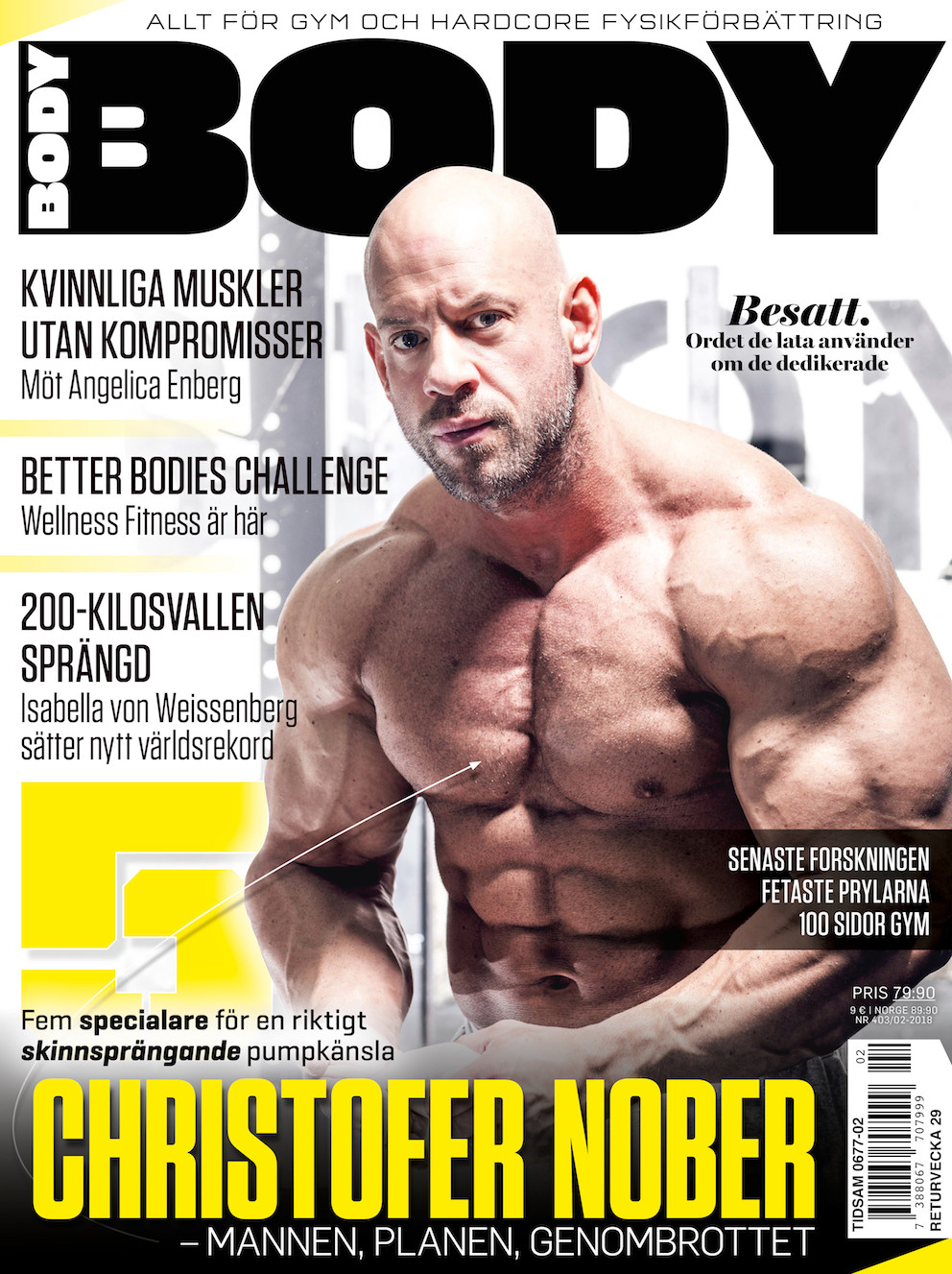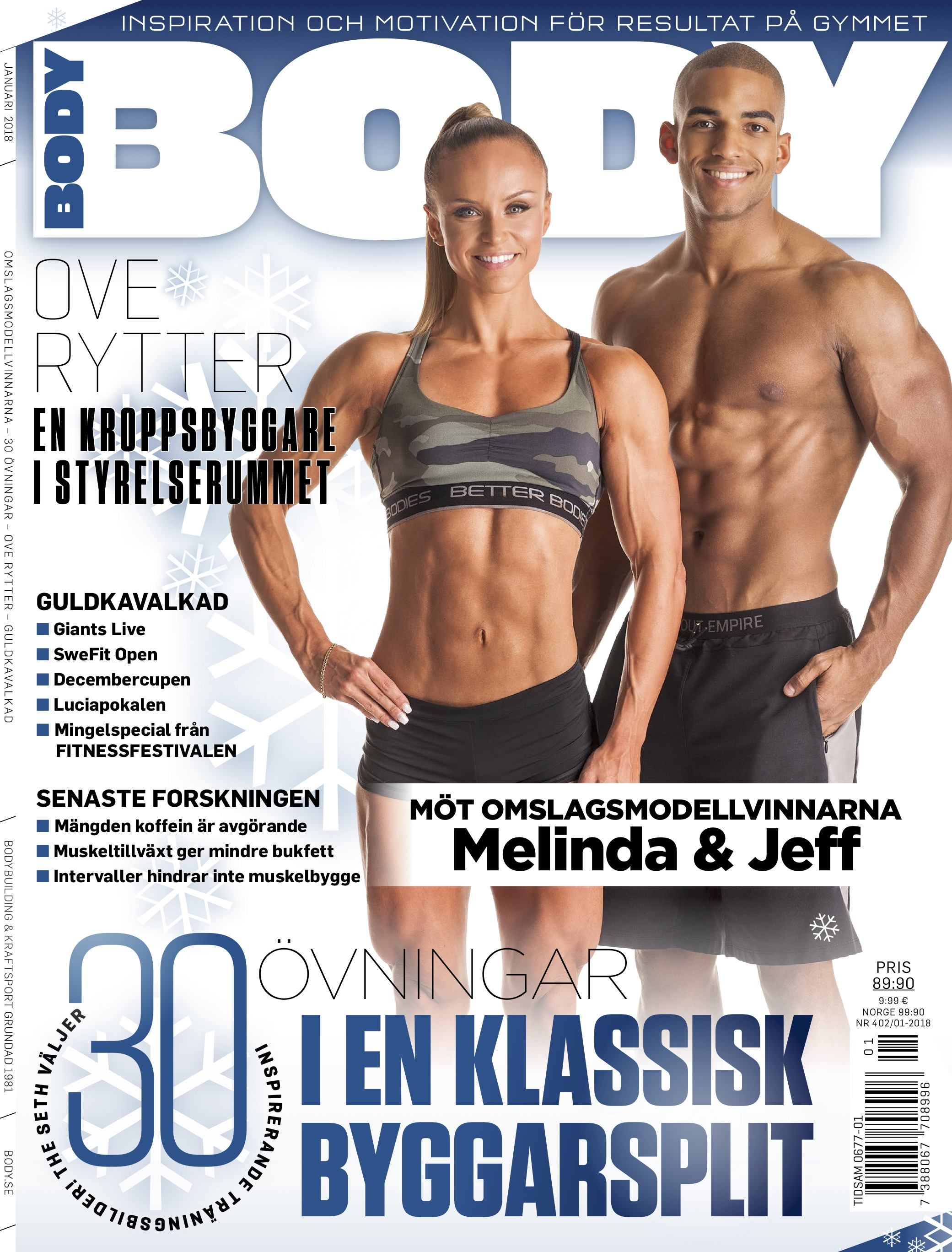Home › Forums › Kost och Näringslära › Bäst Kcal för pengarna
- This topic is empty.
-
AuthorPosts
-
2 december, 2007 at 10:40 #677434
Anonym anvandare
MemberHej
Ny här så detta är första tråden.Vilket tycker ni är bästa och mesta Kcal för pengarna? Vill jag bara få mest så antar jag att jag köper billig matolja och dricker men om man ska lägga in bäst också blir det kanske svårare.
Ett av mina förslag på livsmedel är minimjölk.
Nötter är nog för dyrt på hg för att vara bra och billigtSka bli kul att höra era förslag
Ha de
2 december, 2007 at 10:40 #78069Anonym anvandare
Member2 december, 2007 at 11:10 #677435Anonym anvandare
MemberHur kan du tycka minimjölk är mer kcal för pengarna än standardmjölk? Standardmjölk är det inga fel på alls. Dessutom finns numera ”Gammaldags mjölk” i mjölkhyllorna, 4.5% fett.

Annars skulle jag nog säga att bröd är bra eftersom det är omöjligt att bli mätt på, det är ingen kaloribomb i sig men ingenting i hela världen är så enkelt att överäta som mackor (och nu bortser jag från t.ex. godis och chips etc.).
Såser som majonnäs, aioli, räksallad, gurkmajonnäs, rödbetssallad m.m. ligger också bra till:)2 december, 2007 at 11:39 #677436Anonym anvandare
MemberEddie Vedder wrote:Hur kan du tycka minimjölk är mer kcal för pengarna än standardmjölk? Standardmjölk är det inga fel på alls. Dessutom finns numera ”Gammaldags mjölk” i mjölkhyllorna, 4.5% fett.
Annars skulle jag nog säga att bröd är bra eftersom det är omöjligt att bli mätt på, det är ingen kaloribomb i sig men ingenting i hela världen är så enkelt att överäta som mackor (och nu bortser jag från t.ex. godis och chips etc.).
Såser som majonnäs, aioli, räksallad, gurkmajonnäs, rödbetssallad m.m. ligger också bra till:)Mmm Gammaldags mjölk….smakar som grädde..

Jaha, där kurrade magen till…tack så mkt Eddie..! :p2 december, 2007 at 11:50 #677437Anonym anvandare
MemberChokladmjölk->
Got Milk?
Milk: nature’s original MRP. Despite all the fancy proteins out there all claiming to be the next step in the evolution of proteins that “will blast you past your plateaus in the gym,” good old milk seems to be competing—and winning—against some “high tech” products on the market. We have various studies finding increased protein synthesis and other positive effects when a purified protein supplement (e.g., whey, soy, casein, etc.) ingested right after or before a workout—usually in conjunction with carbohydrates—but what about good old milk, a “real” food?
One recent study found good old milk to be an effective post-workout drink that increased net muscle protein synthesis after resistance training. Yet another recent study compared 2 cups of skim milk as a post workout drink compared to a soy drink and a “sports drink.”
In this study, the milk and soy drinks were matched for basic macronutrient ratios and calories and all three were matched for total calories. 56 male volunteers were split into three groups, with all put on a resistance training program for 12 weeks. The volunteers were then randomly assigned one of the three drinks to consume as a post workout drink and again one hour after the workouts.
Although no major differences were found in strength between the 3 groups, the group getting the milk had the greatest increase in muscle mass (via increases in Type I and II fibers) with researchers concluding
“…chronic postexercise consumption of milk promotes greater hypertrophy during the early stages of resistance training in novice weightlifters when compared with isoenergetic soy or carbohydrate consumption.”
But it gets better: how about our favorite childhood drink, chocolate milk? How about chocolate milk vs. two commercial energy/fluid replacement drinks, such as Gatorade and Endurox R4?
One recent study—albeit a small one—found chocolate milk as effective as Gatorade, and more effective than Endurox, as a recovery drink for trained cyclists between exhaustive bouts of endurance exercise.
Now is this a condemnation of sports drinks and an endorsement for milk/chocolate milk as the last word on post-workout drinks? Not at all: remember those essential questions I mentioned above? You have to look at such a study in context—in other words, at the experimental design and how that applies to the “real world.” The subjects fasted for 10 – 12 h prior to the chocolate milk experiment, and these drinks were the only food these guys had for 14 – 16 hours. The results may have been quite different had they been following their normal eating patterns.
They also measured effects on endurance vs.—say—strength or increased protein synthesis, etc.
So, in the context of this particular study design, look at it this way: chocolate milk has casein (a “slow” protein), and whey (a “fast” protein) as well as calcium, some vitamins and a bunch of carbohydrates—so it makes a pretty good, cheap MRP, if that’s all you are going to get all day long. It’s not a half-bad post-workout drink either. It’s not the best MRP—or post workout drink—I could design, but it’s cheap and easy to find. The reality is that there are some inexpensive foods out there can be used, and most of your old school bodybuilders and strong men used milk as the original post workout drink/MRP.
The study that looked at milk vs. soy and sports drink, was done in novice weight lifters, so that too needs to be taken into consideration. Regardless, milk, in particular chocolate milk, should make a perfectly acceptable and inexpensive post workout drink and people who think it’s too “old school” or not “high tech” enough to be if any use are clearly misinformed and the victim of marketing.
Now the study we need to see that does not exist, of course, is milk or chocolate milk vs. a well thought out post-workout drink of—say—whey and maltodextrin (high GI carb source), in experienced weight lifters who are not fasted—but don’t hold your breath on that one. Studies like that get expensive quickly and also pose practical issues. For example, if you wanted to match the protein content of—say—2 scoops of whey isolate to chocolate milk (so the groups were getting an equivalent amount of protein), the subjects would need to drink a large volume of milk (remember, milk is mostly water).
My hunch is that a correctly designed post-workout drink would be superior to chocolate milk, but it would be nice to see the two compared, no?
Elliot TA, et al.Milk ingestion stimulates net muscle protein synthesis following resistance exercise. Med Sci Sports Exerc. 2006 Apr;38(4):667-74.
Hartman JW, et al. Consumption of fat-free fluid milk after resistance exercise promotes greater lean mass accretion than does consumption of soy or carbohydrate in young, novice, male weightlifters. Am J Clin Nutr. 2007 Aug;86(2):373-81.
2 december, 2007 at 12:39 #677438Anonym anvandare
MemberDwag wrote:Chokladmjölk->Got Milk?
Milk: nature’s original MRP. Despite all the fancy proteins out there all claiming to be the next step in the evolution of proteins that “will blast you past your plateaus in the gym,” good old milk seems to be competing—and winning—against some “high tech” products on the market. We have various studies finding increased protein synthesis and other positive effects when a purified protein supplement (e.g., whey, soy, casein, etc.) ingested right after or before a workout—usually in conjunction with carbohydrates—but what about good old milk, a “real” food?
One recent study found good old milk to be an effective post-workout drink that increased net muscle protein synthesis after resistance training. Yet another recent study compared 2 cups of skim milk as a post workout drink compared to a soy drink and a “sports drink.”
In this study, the milk and soy drinks were matched for basic macronutrient ratios and calories and all three were matched for total calories. 56 male volunteers were split into three groups, with all put on a resistance training program for 12 weeks. The volunteers were then randomly assigned one of the three drinks to consume as a post workout drink and again one hour after the workouts.
Although no major differences were found in strength between the 3 groups, the group getting the milk had the greatest increase in muscle mass (via increases in Type I and II fibers) with researchers concluding
“…chronic postexercise consumption of milk promotes greater hypertrophy during the early stages of resistance training in novice weightlifters when compared with isoenergetic soy or carbohydrate consumption.”
But it gets better: how about our favorite childhood drink, chocolate milk? How about chocolate milk vs. two commercial energy/fluid replacement drinks, such as Gatorade and Endurox R4?
One recent study—albeit a small one—found chocolate milk as effective as Gatorade, and more effective than Endurox, as a recovery drink for trained cyclists between exhaustive bouts of endurance exercise.
Now is this a condemnation of sports drinks and an endorsement for milk/chocolate milk as the last word on post-workout drinks? Not at all: remember those essential questions I mentioned above? You have to look at such a study in context—in other words, at the experimental design and how that applies to the “real world.” The subjects fasted for 10 – 12 h prior to the chocolate milk experiment, and these drinks were the only food these guys had for 14 – 16 hours. The results may have been quite different had they been following their normal eating patterns.
They also measured effects on endurance vs.—say—strength or increased protein synthesis, etc.
So, in the context of this particular study design, look at it this way: chocolate milk has casein (a “slow” protein), and whey (a “fast” protein) as well as calcium, some vitamins and a bunch of carbohydrates—so it makes a pretty good, cheap MRP, if that’s all you are going to get all day long. It’s not a half-bad post-workout drink either. It’s not the best MRP—or post workout drink—I could design, but it’s cheap and easy to find. The reality is that there are some inexpensive foods out there can be used, and most of your old school bodybuilders and strong men used milk as the original post workout drink/MRP.
The study that looked at milk vs. soy and sports drink, was done in novice weight lifters, so that too needs to be taken into consideration. Regardless, milk, in particular chocolate milk, should make a perfectly acceptable and inexpensive post workout drink and people who think it’s too “old school” or not “high tech” enough to be if any use are clearly misinformed and the victim of marketing.
Now the study we need to see that does not exist, of course, is milk or chocolate milk vs. a well thought out post-workout drink of—say—whey and maltodextrin (high GI carb source), in experienced weight lifters who are not fasted—but don’t hold your breath on that one. Studies like that get expensive quickly and also pose practical issues. For example, if you wanted to match the protein content of—say—2 scoops of whey isolate to chocolate milk (so the groups were getting an equivalent amount of protein), the subjects would need to drink a large volume of milk (remember, milk is mostly water).
My hunch is that a correctly designed post-workout drink would be superior to chocolate milk, but it would be nice to see the two compared, no?
Elliot TA, et al.Milk ingestion stimulates net muscle protein synthesis following resistance exercise. Med Sci Sports Exerc. 2006 Apr;38(4):667-74.
Hartman JW, et al. Consumption of fat-free fluid milk after resistance exercise promotes greater lean mass accretion than does consumption of soy or carbohydrate in young, novice, male weightlifters. Am J Clin Nutr. 2007 Aug;86(2):373-81.
 :p2 december, 2007 at 12:45 #677439
:p2 december, 2007 at 12:45 #677439Anonym anvandare
MemberÄgg
2 december, 2007 at 12:55 #677440Anonym anvandare
MemberEddie Vedder wrote:Hur kan du tycka minimjölk är mer kcal för pengarna än standardmjölk? Standardmjölk är det inga fel på alls. Dessutom finns numera ”Gammaldags mjölk” i mjölkhyllorna, 4.5% fett.
Annars skulle jag nog säga att bröd är bra eftersom det är omöjligt att bli mätt på, det är ingen kaloribomb i sig men ingenting i hela världen är så enkelt att överäta som mackor (och nu bortser jag från t.ex. godis och chips etc.).
Såser som majonnäs, aioli, räksallad, gurkmajonnäs, rödbetssallad m.m. ligger också bra till:)Tycker du att Såser som majonnäs, aioli, räksallad, gurkmajonnäs, rödbetssallad är BRA Kcal?
Det verkar vara svårt att förklara vad jag menade.
Alltså, Vad är billigaste bästa livsmedel om man tänker på mängden Kcal man får i sig?2 december, 2007 at 13:11 #677441Anonym anvandare
Memberpillowfighter wrote:Tycker du att Såser som majonnäs, aioli, räksallad, gurkmajonnäs, rödbetssallad är BRA Kcal?De har ofta olika slags oljor som grund.
2 december, 2007 at 13:11 #677442Anonym anvandare
MemberQp +Meny med extra ost på.
2 december, 2007 at 13:19 #677443Anonym anvandare
MemberEn påse havregryn kostar inte många kr och ger ca 3400kcal
Näringsvärdesdeklaration per 100 gram
Energivärde 1450 kJ
Energivärde 340 kcal
Protein 13 g
Kolhydrat 56 g
– varav sockerarter 1,3 g
Fett 7 g
– varav mättat fett 1,5 g
Kostfiber 10 g
Natrium 0,001 g
Tiamin 0,7 mg 50 %*
Niacin 4,0 mg 22 %*
Fosfor 420 mg 52 %*
Järn 5,2 mg 38 %*
Magnesium 130 mg 43 %*
Zink130g protein
560g kolhydrater
70g fettÄter du ett kg om dagen och kolpletterar med någon EAA-drink så lär du kunna leva på det och bygga en massiv kropp på ca 400kr mat/månad
2 december, 2007 at 13:51 #677444Anonym anvandare
Memberpillowfighter wrote:Tycker du att Såser som majonnäs, aioli, räksallad, gurkmajonnäs, rödbetssallad är BRA Kcal?Ge mig en motivering till varför det INTE är nyttigt? Vad är fel på rapsolja, räkor, rödbetor, vitlök etc.?
Det här ska bli intressant….
2 december, 2007 at 14:15 #677445Anonym anvandare
MemberBland dom bästa fettkällorna man kan hitta dessutom.
2 december, 2007 at 14:35 #677446Anonym anvandare
MemberSamir wrote:Äter du ett kg om dagen och kolpletterar med någon EAA-drink så lär du kunna leva på det och bygga en massiv kropp på ca 400kr mat/månadMums:pop:
 2 december, 2007 at 15:37 #677447
2 december, 2007 at 15:37 #677447Anonym anvandare
MemberBananer på Lidl när de har erbjudande:
5.90 kr/kgNäsums chark:
39 kr/kg för svensk nötfärsKvarg Lidl.
22 kr/kgPasta, Ris och Havregryn
Har inga aktuella priser… men billigt! -
AuthorPosts
- You must be logged in to reply to this topic.


